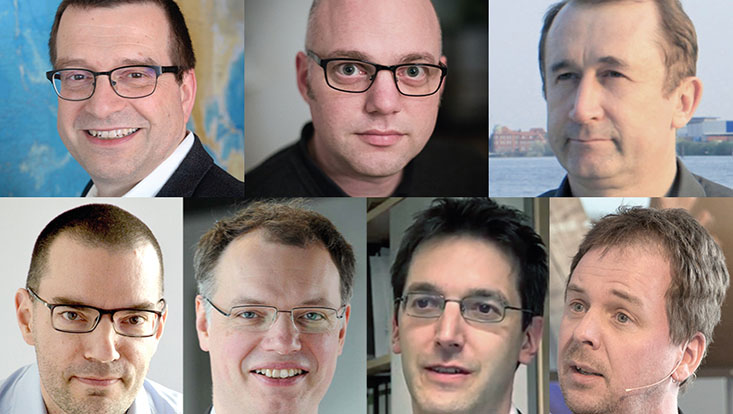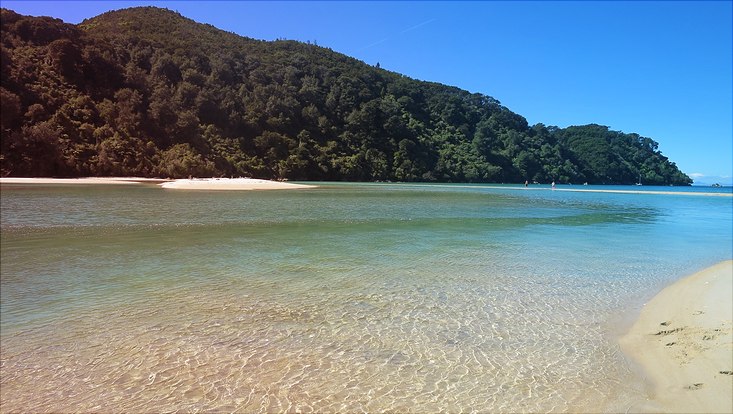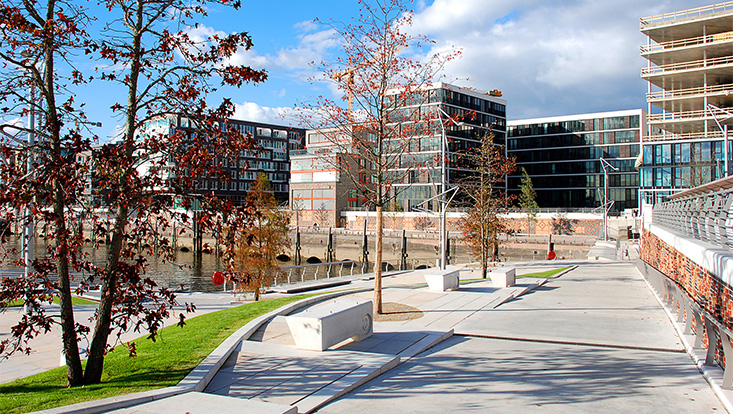IPCC appoints new authors: scientists from Hamburg assume important functions for sixth IPCC report
9 April 2018, by Christina Krätzig

Photo: MPI-M
Scientists of Max Planck Institute for Meteorology (MPI-M) and Universität Hamburg will take over the important function of being authors of the sixth report of the Intergovernmental Panel on Climate Change (IPCC). The IPCC chose seven scientists as Lead Authors, one of whom will have coordinating functions, and Review Editors. Together with colleagues from all over the world, they will summarise the global state of knowledge on climate change. The report will be published in 2021/2022.
“The IPCC report is an important and, in its form, unique stocktaking of what we know about climate change and its consequences for the environment and for society,” says Prof. Dr. Jochem Marotzke from MPI-M, who will act as a Coordinating Lead Author. Along with Marotzke, three other colleagues from the Max Planck Institute for Meteorology will work on the first part of the report about the physical science basis: Prof. Dr. Victor Brovkin, Dr. Thorsten Mauritsen and Dr. Dirk Notz.
The second part of the report will deal with impacts of climate change on the environment and society, and potential adaption strategies. CEN scientist Prof. Dr. Christian Möllmann was chosen as a Lead Author of the chapter “Europe”. “There is an increasing societal interest to understand which opportunities for action are actually at our disposal in terms of adaptation and mitigation and what their respective advantages and disadvantages are,” explained CEN scientist Prof. Dr. Hermann Held, who has been chosen to be a Review Editor for the third part of the report. This part will cover opportunities climate change mitigation and he will work on chapter 17 “Accelerating the transition in the context of sustainable development”. Dr. Oliver Geden, who is a research group leader at the German Institute for International and Security Affairs (SWP) and a guest at MPI-M and The Centre for Globalisation and Governance (CGG) at Universität Hamburg, will also contribute to the third part.
The IPCC authors assess, compare and integrate all results of the international scientific community. Their reports serve governments as a decision-making tool. The fifth report was published in 2013/2014, ahead of the sixth assessment report, special reports are planned. The special reports will include topics like “Global Warming of 1.5°C”, “Ocean and Cryosphere in a Changing Climate” and “Climate Change and Land”.
Working Group 1: The Physical Science Basis
Prof. Dr. Victor Brovkin, Max Planck Institute for Meteorology. Review Editor chapter 5: “Global carbon and other biogeochemical cycles and feedbacks”.
Prof. Dr. Jochem Marotzke, Max Planck Institute for Meteorology. Coordinating Lead Author chapter 4: “Future global climate: scenario-based projections and near-term information”.
Dr. Thorsten Mauritsen, Max Planck Institute for Meteorology. Lead Author chapter 7: “The Earth´s energy budget, climate feedbacks, and climate sensitivity”.
Dr. Dirk Notz, Max Planck Institute for Meteorology. Lead Author chapter 9: “Ocean, cryosphere, and sea level change”.
Working Group 2: Impacts, Adaptation, and Vulnerability
Prof. Dr. Christian Möllmann, Center for Earth System Research and Sustainability (CEN), Universität Hamburg. Lead Author chapter 13: “Europe”.
Working Group 3: Mitigation of Climate Change
Prof. Dr. Hermann Held, Center for Earth System Research and Sustainability (CEN), Universität Hamburg. Review editor chapter 17: “Accelerating the transition in the context of sustainable development”.
Dr. Oliver Geden, German Institute for International and Security Affairs (SWP) and guest at Max Planck Institute for Meteorology and The Centre for Globalisation and Governance (CGG) at Universität Hamburg, Lead Author chapter 12: “Cross sectoral perspectives”.
Candidates chosen by IPCC must have selected characteristics: cutting-edge expertise documented by relevant publications, broad overview of a research field proven by relevant review publications or expert reports, proven coordination and communication skills.
Further information:
Factsheet: How does the IPCC select its authors? (PDF)
Find more information about the different author categories here.
Contact:
Stephanie Janssen
Universität Hamburg
Press- and public relations
Phone +49 40/ 42838 – 7596
stephanie.janssen"AT"uni-hamburg.de
Dörte de Graaf
Max Planck Institute for Meteorology
Communication
Phone +49 40/ 41173 - 387
doerte.degraaf"AT"mpimet.mpg.de


